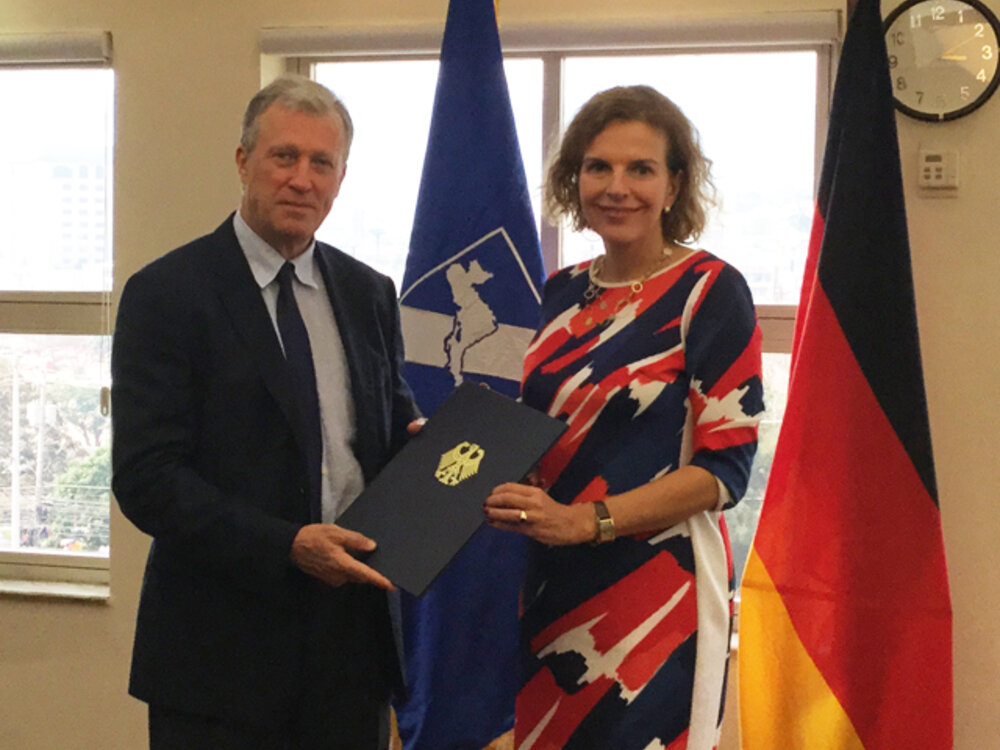Mexico has been a non-regional CABEI member since 1992 with an authorized stake of USD306.25 million in the Bank's share capital and capital contributions of USD76.56 million, ranking as the third largest shareholder within the group of non-regional members with 5.03%.
The contribution that Mexico channels to the Central American region through CABEI is based on various financial cooperation instruments with Banco Nacional de Comercio Exterior S.N.C. (Bancomext) for a total amount of USD520.8 million. The relationship between the Bank and this country was solidified in 2008 with the launching of the Central American Social Housing Development Program. It falls under the framework of the Mesoamerican Integration and Development Project (formerly Plan Puebla Panamá). Since that date, the Mexican government has made resources available to develop a sustainable market for long-term housing finance in the Central American region that addresses the housing deficit and future needs in this area. Throughout the Program's existence, 59 disbursements have been made through 14 intermediary institutions. In total, 192.7% of the initial financing available has been channeled, benefiting a total of 8,032 low- income households, which can now enjoy a more dignified home.
An example of regional success in financing renewable energy and energy efficiency

CABEI and the German government will allocate EUR 41.0 million for the second phase of a financing mechanism, which contributed to reducing greenhouse gas emissions by 936.9388 tons of CO2 in 2015.
The Green MSME Initiative is a mechanism established by the Central American Bank for Economic Integration (CABEI) with financial support from the German KFW Development Bank and the European Union through its Latin American Investment Facility (LAIF).
The initiative’s objective is to contribute to climate and environmental protection and to promote investment in energy efficiency and renewable energy by small and medium enterprises. During 2015, this financing mechanism provided resources to 59 Intermediary Financial Institutions (IFIs); 18 of them established technical assistance funds, 34 participated in training processes to identify energy projects and 17 were actively involved in providing funding for energy efficiency and renewable energy projects.
The Initiative’s beneficiaries are composed of small and medium enterprises belonging to the economic sector of energy and transportation; 7,398 men and 2,223 women for a total of 9,621 beneficiaries. In order to provide continuity to this successful initiative, CABEI and the German government signed a technical cooperation agreement amounting to 41.0 million euros.
The agreement was signed by German Ambassador to Honduras, Mrs. Beatrix Kania, on behalf of Germany’s Federal Ministry for Economic Cooperation and Development, and CABEI Executive President, Dr. Nick Rischbieth.
"Given the success achieved by the Green MSME Initiative during its first phase and the vision of giving continuity to the Initiative, the German government has allocated an additional 41.0 million Euros, which is equivalent to approximately 1.0 billion lempiras, to contribute to climate and environmental protection through Micro, Small and Medium Enterprises (MSMEs) in the Central American region," stated Ambassador Kania.
She added that, "The funds will be used to accomplish highly specific objectives, such as funding MSMEs applying for loans to invest in solar panels or modernizing public transportation systems with buses that use less fuel." For his part, CABEI Executive President Dr. Nick Rischbieth noted that, "The signing of the agreement reinforces the financial cooperation between Germany and CABEI."
He also highlighted the fact that, "CABEI has maintained a long-standing relationship of financial cooperation with Germany, having signed an aggregate amount of more than US$450.0 million in loans with the German KfW Development Bank aimed at fostering the region’s sustainable development and promoting renewable energy and energy efficiency projects at MSMEs."









